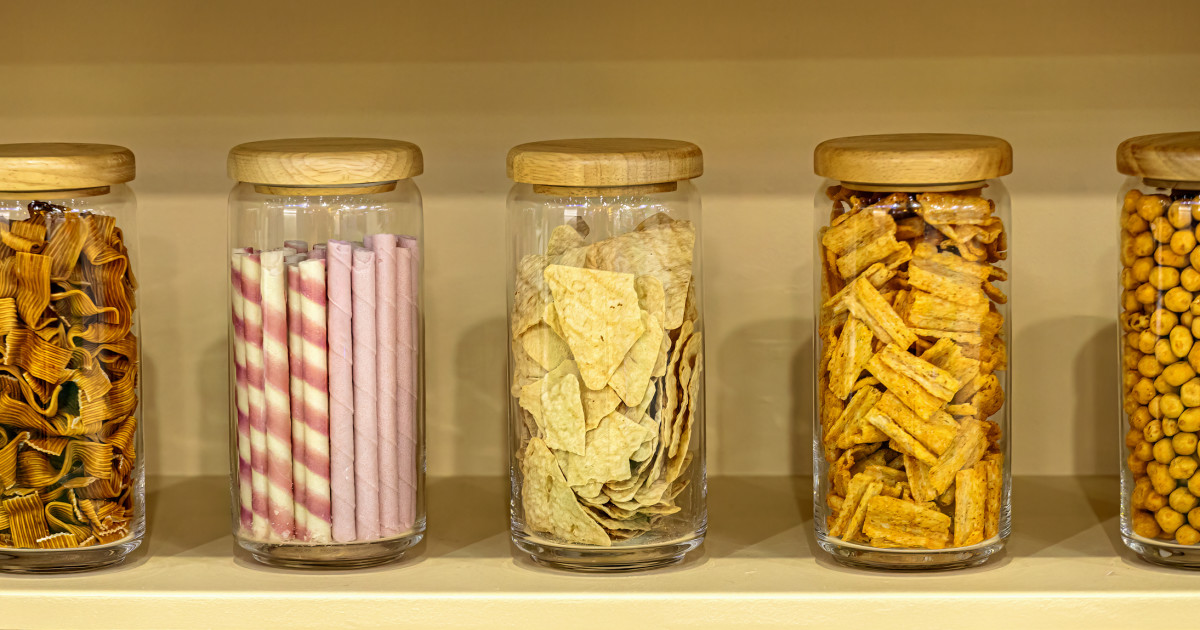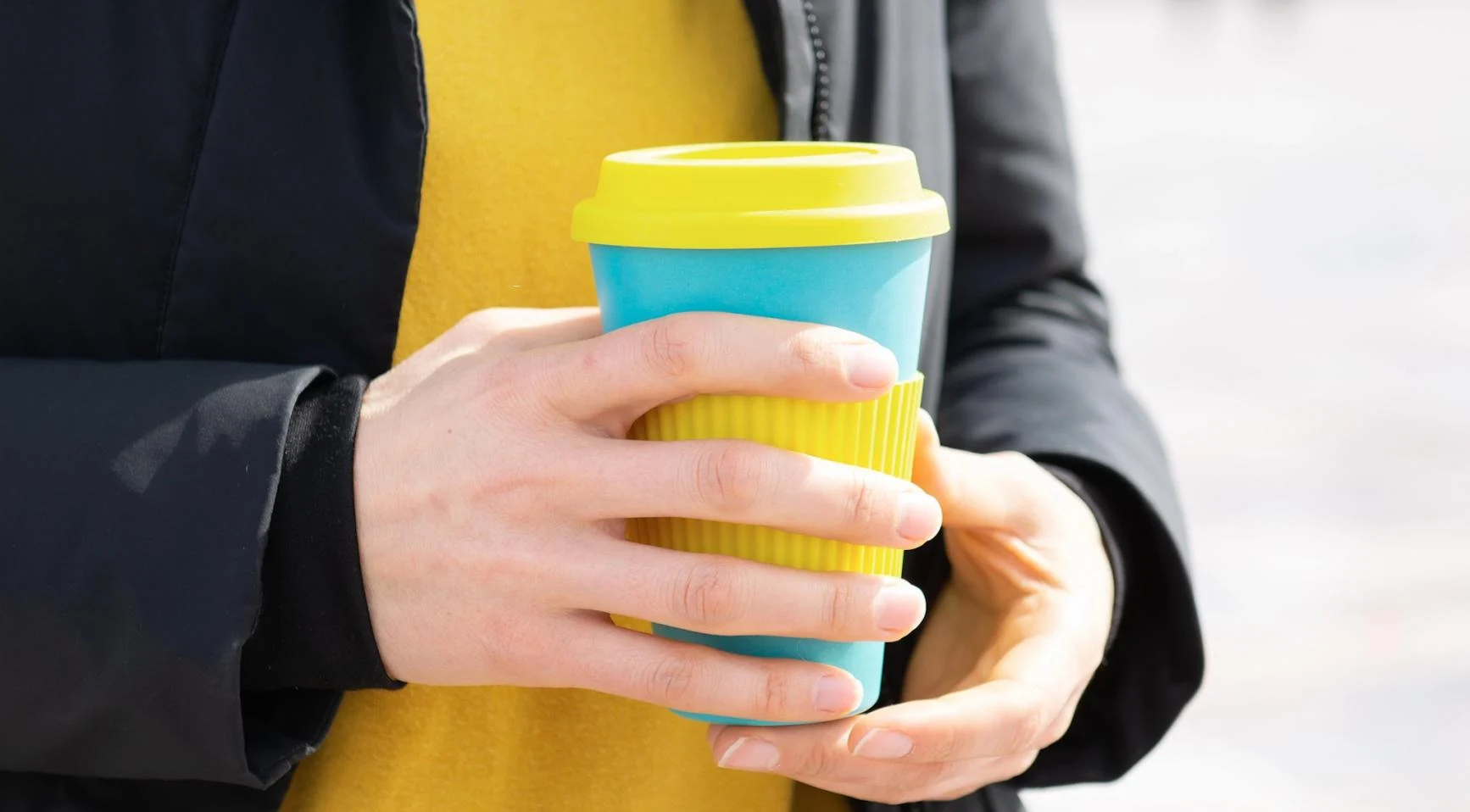Copyright Parade

Key Points Artificial sweeteners may negatively alter gut bacteria and cause digestive issues like bloating. More human studies are needed to fully understand artificial sweeteners’ gut health impacts. Natural alternatives include honey, fruit and maple syrup for healthier sweetening options. Opening your kitchen pantry and seeing well-stocked shelves is satisfying: You probably have what you need for a high-protein pantry dinner, and you’re not running out of olive oil any time soon. But certain kitchen staples may leave you bloated and even sluggish, including ones that have a reputation for being healthy. “It’s important to understand why health halos are problematic because they can hurt your gut health,” explains Amanda Sauceda, MS, RD, the owner of The Mindful Gut. “It’s also important to recognize that good gut health comes from [our] overall daily choices.” All this to say, there’s one pantry item you may want to avoid adding to your morning cup of coffee. Sauceda and three doctors reveal the kitchen staple that can secretly ruin your gut health, plus ideas for what to use instead. 🩺SIGN UP for Parade’s health newsletter with expert-approved tips, healthy eats, exercises, news & more to help you stay healthy & feel your best self💊 The ‘Healthy’ Pantry Staple That Could Harm Gut Health, According to Doctors Experts say that artificial sweeteners can have a very real—and negative—effect on your gut, which may come as a surprise given that they’re billed as “healthy” sugar alternatives. “Artificial sweeteners such as sucralose, aspartame and saccharin can change the mix of bacteria in your gut,” says Dr. Raj Dasgupta, MD, the chief medical advisor for Sleepopolis. “They may reduce the good bacteria and let more harmful ones grow.. Even though these sweeteners don’t have calories, they can still send confusing signals to your gut and metabolism.” The FDA notes that artificial sweeteners are commonly found in gums, baked goods, and other sweets. For instance, Splenda is a brand name for sucralose. People may it because it doesn’t contain calories and generally won’t raise blood sugar levels, though it can. Sauceda echoes Dr. Dasgupta’s sentiments, saying that artificial sweeteners can harm gut health. “Artificial sweeteners aren’t digested by the body,” Sauceda explains. “The sweetener can pass through the digestive tract and gets excreted via your poop. It’s thought that artificial sweeteners like saccharin and sucralose can contribute to inflammation in the gut, along with changing the types of bacteria we see in the gut. These changes in the gut microbiome are a theory as to why artificial sweeteners may be problematic for blood sugar control.” Keyword: Theory. Even the authors of the 2024 research that Sauceda pointed to say that more data is needed. So, should you pour all your artificial sweeteners into the trash ASAP? One physician shares that we need more human data on artificial sweeteners—period—before we can definitively put them on any “no-fly” lists for gut health issues. “It is important to note that each artificial sweetener seems to have different properties, and more human studies are needed to draw real conclusions about their impact,” notes Dr. Brintha Vasagar, MD, MPH, a family physician. Related: Here’s Exactly How Much Fiber To Eat Each Day To Improve Your Gut Health—and How To Get It Signs Artificial Sweeteners Are Wrecking Your Gut Health Gas, bloating, diarrhea and abdominal cramping are common signs that an artificial sweetener is affecting your gut, shares Dr. Pratima Dibba, MD, a board-certified gastroenterologist with Medical Offices of Manhattan and labfinder.com contributor. “However, symptoms may not necessarily be obvious or severe even if these sweeteners are affecting the gut microbiome,” Dr. Dibba says. “Therefore, it is best to just avoid these sweeteners in high doses.” And your gut isn’t the only area where you might feel the impact of artificial sweeteners. “Artificial sweeteners may be found in foods that are highly processed,” Sauceda says. “As a result, you might start to feel more sluggish because even though you’re getting calories, you might not be getting much else in the way of nutrients.” If you think your consumption of artificial sweeteners is contributing to gut health issues and fatigue, Dr. Dasgupta suggests cutting back or eliminating them from your diet for a few weeks. “See if you feel better,” he says. “Eating more fiber-rich foods, fruits, veggies and fermented foods can help your gut recover.” If it persists—or you’re concerned—talk to your doctor. “There are many things that can cause diarrhea, constipation or abdominal pain, so it is important to discuss any changes with your family medicine physician, who can help you identify the source of your symptoms and find a way to resolve them,” Dr. Vasagar states. Related: Here’s Exactly What Happens to Your Body When You Eat Honey Every Day 3 Tips for Sweetening Foods Without Artificial Sweeteners If you’ve soured on artificial sweeteners at this point, we don’t blame you. But you can still enjoy the sweeter things in life. Sauceda shares her favorite ways to sweeten recipes that don’t involve standard sugar: Honey. Honey is Sauceda’s go-to sweetener. “There are a lot of different varieties with varying flavor profiles. Honey is sweeter than regular sugar, so you don’t need to use as much to get a sweet flavor, and there are also small amounts of vitamins and minerals in honey.” Fruit. Plot twist? Maybe not. “Banana bread is popular for a reason, and that’s because fruit, like brown bananas, is a great natural sweetener,” she notes. “When I can, I try to opt for fruits to sweeten things because you’ll also get some fiber along with whatever nutrients that fruit has. Prunes have to be an underrated sweetener.” Maple syrup. “While I love honey more than maple syrup, sometimes you need a deeper flavoring, and maple syrup fits the bill,” Sauceda shares. Like honey, she explains, maple syrup is a liquid sweetener with vitamins and minerals that does a great job of sweetening baked goods. Up Next: Sources:



